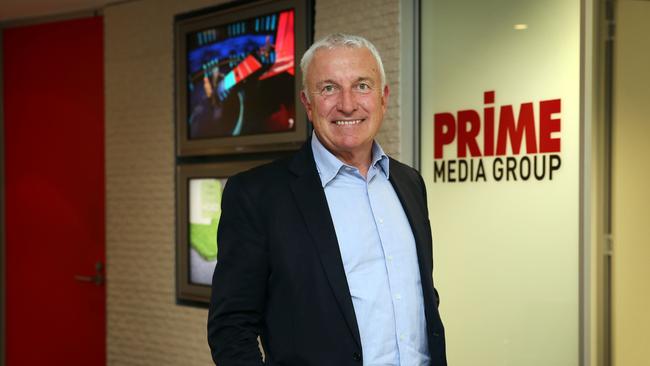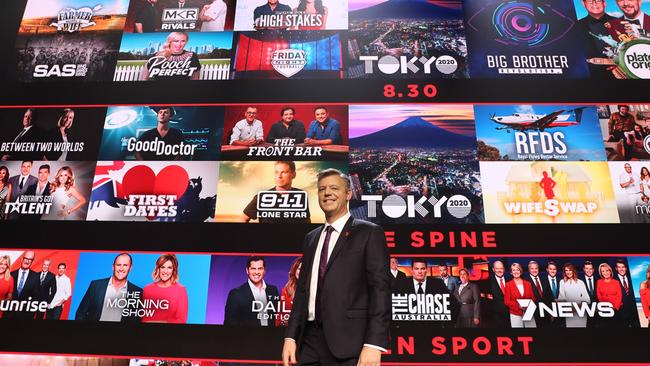Merger essential as Prime bemoans ad market
Prime Media calls out a tough advertising market, warning of “few” options to grow without its $63m Seven merger.

Prime Media is the latest media player to call out a tough advertising market, warning there were “few” options to grow without its $63m merger with free-to-air player Seven West Media.
At its annual general meeting on Thursday in Sydney, the regional broadcaster’s chief executive Ian Audsley said the short-term outlook for the business depended on the success of cricket broadcasting and wider market conditions, which were “less than favourable”.
“Local direct sales has also experienced soft conditions in retail, regional banking and major regional events due to seasonality,” Mr Audsley said. “However, national advertising sponsorships for the summer of cricket and in the lead-up to the Tokyo Olympics have been encouraging.”
But Mr Audsley said the options for the business would be limited if the merger was voted down.
His comments follow the release of a report by independent expert Lonergan, Edwards & Associates last week which said the proposed deal was “not fair” but a “reasonable transaction”.
At the same time regional media owner Antony Catalano has quietly built a 12.9 per cent stake in Prime, hoping to be a player in any merger talks.
“(Prime) could merge with another regional traditional media business. Such a merger might provide cost and revenue synergies in the short term, but it will not change the scale of opportunity Prime has exposure to,” Mr Audsley said on Thursday.
READ MORE: Industry to cut costs as ad market slides | Women lead the way at Publicis | Analysts downgrade Nine on profit warning
“It will not provide a deep library of digital entertainment options to attract digital audiences and advertisers to Prime.
“Prime’s other option is to continue its arguments for reform. We have been engaged with government for almost 12 months in regard to deeper reforms, including the consolidation of Prime and its commercial rivals into a single entity, in effect repudiating the government’s aggregated regional television model.”
Prime chairman John Hartigan said that while the business had been proactive in responding to the challenges of the regional advertising market, it was suffering from its fourth consecutive year of declining revenue.

However, Mr Hartigan said the proposed Seven deal could help the business. The deal, which Seven chief executive James Warburton has previously described as a “game-changer”, was pitched at a price below the expert’s value for Prime shares.
Prime continues to maintain its full-year guidance for EBITDA of $23m to $25m and net profit after tax of $8m to $10m, despite a 5.4 per cent decline in advertising revenue for the financial year to October 31.
Local direct revenue for the same period fell by 3.5 per cent. Prime said advertising revenue had been hit by soft conditions in banking, automotive and retail sectors and poor consumer sentiment. Local revenue was more resilient, but the drought had weakened conditions.
Mr Hartigan urged the government to act and level the playing field with digital platforms.
“While we wait for the next steps following the ACCC findings, it is clear that changes within our industry are also being driven by consumers, with audiences shifting to platforms that enable them to watch whichever programs they prefer at a time of their own choosing,” he said.
“This is a strong challenge for traditional television services … which relay on content from a metropolitan affiliate partner in the former of a fixed schedule.’’



To join the conversation, please log in. Don't have an account? Register
Join the conversation, you are commenting as Logout